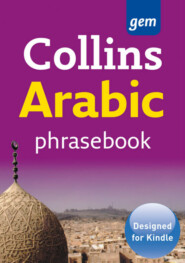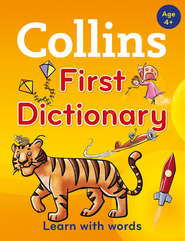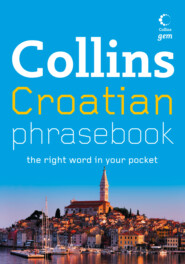По всем вопросам обращайтесь на: info@litportal.ru
(©) 2003-2024.
✖
Scots Dictionary: The perfect wee guide to the Scots language
Настройки чтения
Размер шрифта
Высота строк
Поля
bonspiel (bon-speel) A bonspiel is a curling tournament. Originally they were held outdoors on frozen lochs. [The origin of the term is uncertain, but it seems to be of Dutch or Flemish derivation: the second part is related to Dutch spel and German Spiel meaning game]
bonxie (bonk-si) The bonxie is the Shetland name for the great skua: The Arctic skua is smaller than the great skua, or “bonxie”, but even more aggressive. [The word is probably of Scandinavian origin]
bool A bool is one of the large black balls used in the game of bowling, or among children, a marble. The games of bowling and marbles are both known as bools. If someone is described as speaking with a bool in their mou or mooth they are regarded as having an affectedly posh accent.
boorach or bourach (boo-raCH) A boorach is a word used in Northeastern Scotland to mean a group of assorted people or things. In the Highlands, boorach has the slightly different meaning of a mess or a disorderly state or heap. [Both senses are from the Gaelic bùrach a digging]
Borderer A Borderer is someone who lives in, or comes from, the area along the border between Scotland and England, in Scottish use particularly someone who lives on the Scottish side of the border.
Borders
Borders The Borders is the area of Southern Scotland near the border with England, extending from the Solway Firth just south of Gretna in the west to a few miles north of Berwick-upon-Tweed in the east. The Scottish Borders is the name of a council area that extends inland from the East Coast to where it meets Dumfries and Galloway, about twenty kilometres inland from the eastern end of the Solway Firth.
bosie (rhymes with cosy) Bosie is a Northeastern word meaning an embrace or cuddle: Gie’s a bosie. The bosie is the bosom: Stick that flooer in yer bosie.
bothan (both-an) In the Western Isles, a bothan is a building where alcohol is illegally sold and drunk. [The name comes from the Gaelic word for a hut]
bothy (rhymes with frothy) The word bothy has a variety of meanings, all of which ultimately have to do with it being a hut used for shelter. Historically, a bothy was a building on a farm providing eating and dormitory facilities for unmarried farm workers, most common in the Northeast. Nowadays, the term has come to mean a hut or cabin where workers, for instance those on a building site, can go to shelter from bad weather, for a tea break, or to eat. A bothy is also a sparsely furnished hut or cottage which hillwalkers or climbers can use for shelter or overnight accommodation. The plural is bothies.
bothy ballad A bothy ballad is a type of folk song which originated among farmworkers in Northeast Scotland. It usually deals with everyday rural life, often in a bawdy manner.
bottling A bottling is the Glasgow name for a pre-wedding ritual in which the bride-to-be is dressed up in outlandish clothes and paraded through the streets by her female friends and relatives to the accompaniment of banging potlids. Any man such a group stumbles across is expected to give them money in return for the privilege of kissing the bride. In some other parts of Scotland where this is carried out, for instance parts of Lanarkshire, it is known as a creeling.
bourach (boor-aCH) A variant of boorach.
bowff or bouff (bowf) 1 To bowff is to smell strongly and unpleasantly, like something which has decayed and gone off: Eeugh! This beer’s bowffin! A bowff is a strong unpleasant smell. 2 To bowff is also to bark, or to speak aggressively or cough in a way reminiscent of barking.
bowly or bowlie (rhymes with jowly) Someone who is bowly or bowly-legged has bow legs: his rounded shoulders and bowly legs.
box 1 The box is an informal name for the accordion, often used in Scottish country dancing or folk music circles: He is a singer and a good box player.2 Someone’s box is their head. This sense is usually enountered in the idioms out of one’s box meaning very drunk, or to do one’s box in meaning to baffle or exhaust mentally.
boy A boy is an apprentice.
brae (bray) A brae is a hill or hillside. In place names such as the Gleniffer Braes, the word braes means a hilly upland area.
braeheid (bray-heed) The braeheid or the heid o the brae is the area at the top of a hill.
bramble In Scotland, bramble is a name for the blackberry fruit and not just the blackberry bush. To go brambling is to go out picking blackberries.
brammer A brammer is a West of Scotland slang term for something very good: Is that a new tie? It’s a brammer. [The word may be a Scottish form of the army slang term brahma with the same meaning, and possibly comes via the former British military presence in India from Brahma, who is one of the most important Hindu gods, and hence worthy of great respect and admiration]
brander A brander is the metal grating covering a drain in the street.
braw
braw Something which is braw is fine or excellent: It’s a braw day. [The word is a Scots form of brave]
bree The liquid in which something edible has been boiled or left to soak is known as bree. Some types of soup are also traditionally called bree, such as partan bree, a type of crab soup. In the Northeast, to bree potatoes or other vegetables is to drain the water from them after they have been boiled. Barley bree is a poetic or old-fashioned name for whisky.
breeks Breeks are trousers or, occasionally, underpants. [The word is a Scottish form of breeches]
breenge To breenge is to go somewhere or do something in a hasty and forceful, and usually clumsy or thoughtless, manner: He breenged his way through the crowd. A breenge is a forceful but clumsy rush.
breenger (breenge-er) In West Central Scotland, a breenger is a person who acts impetuously and without proper thought.
breid (breed) Breid is the Scots word for bread. In parts of the Northeast, it also means oatcakes.
bridie A bridie is a type of semi-circular pie or pasty consisting of pastry folded over a minced meat and onion filling. They originated in the town of Forfar in Northeast Scotland, and are therefore sometimes known as Forfar bridies. [They were apparently originally served at weddings, hence the name, which is a shortening of bride’s pie]
brig A brig is a bridge.
broch (rhymes with loch) A broch is a type of wide round stone tower, dating from the Iron Age, which was large enough to serve as a fortified home. The ruins of brochs can still be seen in various places, mainly in the North and the Islands.
Brocher (broCH-er) A Brocher is someone from the towns of Fraserburgh or Burghead in Northeast Scotland. [The name comes from an old sense of broch, a burgh or town, still used as local nicknames for Fraserburgh and Burghead]
brocht (brawCHt) Brocht means brought: He’s been weel brocht up.
brock (rhymes with lock) or bruck (rhymes with luck) Brock is rubbish or broken or leftover pieces: He called the plan “a load o bruck”. [The word ultimately comes from the Old English brecan to break]
brogan (rhymes with slogan) Originally a brogan was a type of Highland shoe made from untanned hide and stitched with leather thongs, but nowadays it is used to refer to any type of heavy walking shoe, especially the brogue, a style of shoe decorated with a pattern of perforations along the seams. [The word comes from the Gaelic bròg a shoe, plus the diminutive ending -an]
broo A variant of buroo.
brook In the Northeast, soot is known as brook. Something which is brookie or brookit is sooty or dirty.
brose (rhymes with rose) Brose is an old-fashioned porridge-like dish consisting of oatmeal or peasemeal mixed with boiling water, a pinch of salt, and sometimes some butter. See also Atholl brose.
bruck (rhymes with luck) The usual Orkney and Shetland form of brock.
bubble To bubble is to cry, snivel, or weep: The wean came in from school bubblin. A bubble is a cry: She had a wee bubble at the end of the picture.
bubbly Someone who is bubbly is in, or on the point of, tears, or is sulking: Ah thought ye wantit to go. Well stick, bubbly!
bubbly jock A bubbly jock is a male turkey. [It is probably so called because of the noise it makes]
bucket In Scotland, a bucket can be a wastepaper bin or dustbin as well as a pail: Chuck it in the bucket, will you?A bucket is any undefined but large amount of alcohol. In this sense the word is usually encountered in phrases such as we’d both had a fair bucket or he takes a good bucket.
buckie
buckie A buckie is a whelk, a type of shellfish with a snail-like shell, some varieties of which are edible. [The term comes from buccinum, the Latin name for a whelk]
Buckie Buckie is an informal name for Buckfast, a tonic wine (brewed in Buckfast Abbey, Devon), the cheapness and strength of which make it popular with those whose aim is to get drunk as quickly as possible: C’mon we’ll get blootered on Buckie before the game.
Buddy A person from Paisley is sometimes referred to as a Paisley Buddy. St Mirren, Paisley’s professional football team, are nicknamed the Buddies. [The word comes from the pronunciation of the Scots word body, a person]
Bully Wee The Bully Wee is the nickname of Clyde football team. [The name comes from bully, an old-fashioned term meaning fine or admirable, plus wee reflecting the fact that Clyde were always one of the less powerful and successful of the Glasgow teams. (They now play in Cumbernauld)]
bum To bum is to boast or brag. A boaster or conceited person can be spoken of contemptuously as a bum. [These senses come from the earlier Scots sense, to make a humming or buzzing noise]











